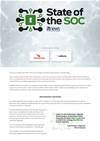Transport for NSW’s cluster-wide SAP consolidation has hit a number of road bumps likely to set the project back by over a year, the NSW Auditor-General has revealed in his latest report to Parliament.

As the state’s chief transport agency, Transport for NSW is leading the consolidation of back office ERP systems across all the portfolio’s agencies, including Sydney Trains, NSW Trains and Roads and Maritime Services.
The mammoth task received $151 million in the 2012-13 NSW state budget to be spent between 2012 and 2016.
But NSW Auditor-General Grant Hehir today revealed the job is now likely to extend a year beyond its original December 2015 deadline, with an expected completion date of January 2017.
“Management have responded to some of the early challenges of the project, including project team changes and scope changes, with re-alignment of project plans and delivery timelines,” the Auditor reported in his annual review of the Transport cluster’s operations.
He warned the agency's management not to get caught up in the technical aspects of the IT overhaul, and to make sure staff are adequately prepared to transition to the new platform and business process by the time January 2017 rolls around.
“While much attention has been given to ensuring the technical requirements for the project are delivered, the project team should also adequately plan for business transformation aspects of the implementation," he wrote.
“This includes the management of structural and process changes arising from the project, the delivery of adequate training around the new system and processes to end users, and ensuring appropriate support arrangements are in place."
As of 30 June 2014, $76.5 million had been spent on the project.
With the ERP systems issue being addressed, Hehir was at pains to make sure the Transport agencies were also mindful of the steadily increasing risk their remaining legacy IT environments pose – and the long lead-in times required for their replacement.
He said concerns about old technology were “increasingly prevalent” amongst the cluster, leaving agencies vulnerable to system attacks, unable to integrate newer software and hardware, and a skills shortage for staff able to support these legacy platforms.
“As projects to replace legacy systems can span many years, Transport agencies should be mindful of the risks associated with managing legacy systems and establish appropriate strategies to address these risks during the transition period,” the report said.

.png&h=140&w=231&c=1&s=0)


.png&h=140&w=231&c=1&s=0)


_page-0001.jpg&w=100&c=1&s=0)


 Integrate Expo 2025
Integrate Expo 2025
.png&w=120&c=1&s=0) Security Exhibition & Conference 2025
Security Exhibition & Conference 2025
 Digital Leadership Day Queensland
Digital Leadership Day Queensland
 Government Cyber Security Showcase Queensland
Government Cyber Security Showcase Queensland
 Government Innovation Showcase Queensland
Government Innovation Showcase Queensland











.jpg&h=140&w=231&c=1&s=0)



